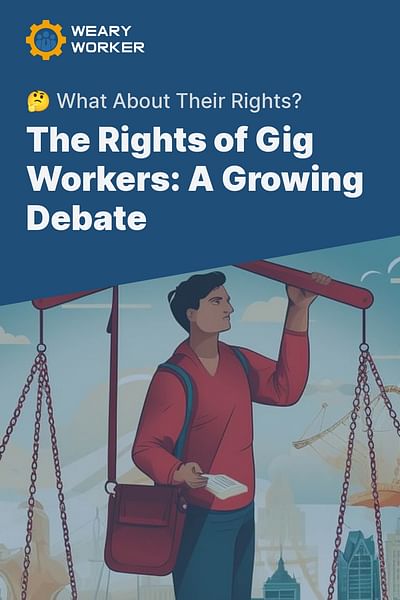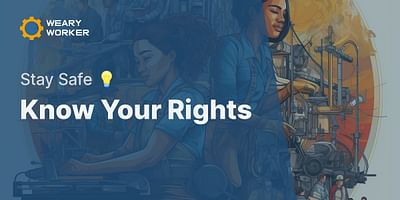Blake Lemke is a seasoned labor rights advocate who transitioned into writing after years of representing unions. His unique perspective, shaped by his experiences advocating for employees' rights, offers a unique twist to his writings. A resident of the sandy terrains of Nevada, Blake finds inspiration amidst the desert's serenity.
Should gig workers be entitled to standard workers' rights? Absolutely. The gig economy, a labor market characterized by freelance, flexible, on-demand work rather than traditional full-time employment, is expanding rapidly. As a result, the question of whether gig workers should be entitled to standard workers’ rights is more pertinent than ever. Currently, many gig workers are classified as independent contractors, which means they don't enjoy the same protections and benefits as regular employees. However, this classification is increasingly being contested.
Peeling Back the Layers: The Reality of Gig Workers' Rights Today
The current status of gig workers varies significantly depending on the jurisdiction and the specific nature of their work. In the US, for example, gig workers are generally classified as independent contractors. This classification exempts companies from providing benefits such as health insurance, sick leave, and overtime pay. It also excludes gig workers from the protections of employment laws.
For a more detailed look at the current state of workers' rights in various states, check out these articles on Nevada labor laws and Georgia labor laws.
Why We Can't Ignore Gig Workers' Rights Anymore
There are several compelling reasons why gig workers should be entitled to standard workers' rights.
💰Let's Talk Money: The Fight for Fair Compensation
Firstly, gig workers often work long hours but are not entitled to overtime pay or minimum wage protections. Many also bear significant business-related expenses, such as vehicle maintenance and insurance, which can significantly reduce their take-home pay. Ensuring gig workers are entitled to fair compensation for their work is a matter of basic economic justice.
Health and Safety: Why Gig Workers Need More Protections
Secondly, gig workers should be entitled to health and safety protections. Many gig workers perform their duties in potentially hazardous conditions, yet they often lack access to workers' compensation if they're injured on the job. This is a significant gap in the safety net that needs to be addressed.
Job Security: A Luxury Gig Workers Can't Afford?
Thirdly, gig workers typically lack job security. They can be deactivated or fired at will, often without any recourse. Standard workers' rights would provide gig workers with greater job security and protect them from arbitrary dismissal.
One of the many gig workers who experiences this lack of job security firsthand shares their story below.
Their story is a stark reminder of the precarious situation many gig workers find themselves in, and underscores the urgent need for more comprehensive workers' rights.
Charting the Course: Towards Better Rights for Gig Workers
It's clear that current labor laws need to evolve to adequately protect gig workers. This will likely involve reclassifying gig workers as employees or creating a new legal category that provides them with certain key protections and benefits.
For a deeper dive into this topic, I recommend reading this FAQ post on how we can enhance the protection of workers' rights in the U.S..
To better understand the intricacies of this issue, let's take a look at a detailed discussion moderated by Professor Karl Klare at Northeastern University School of Law. This video covers everything from gig workers' rights to the future of employment and democracy.
That video provides a thorough analysis of the issues surrounding gig workers' rights. As we continue to explore the implications of the gig economy, it's crucial to consider these perspectives and work towards a fair and equitable solution.
In conclusion, gig workers should indeed be entitled to standard workers' rights. As the gig economy continues to grow, it's crucial that our labor laws adapt to ensure these workers are fairly compensated, protected by health and safety regulations, and provided with job security. After all, a just society is one that protects the rights of all its workers, regardless of how they are classified.
What's your view on gig workers' rights?
Do you believe that gig workers should be entitled to the same rights as traditional workers, including fair compensation, health and safety protections, and job security?















